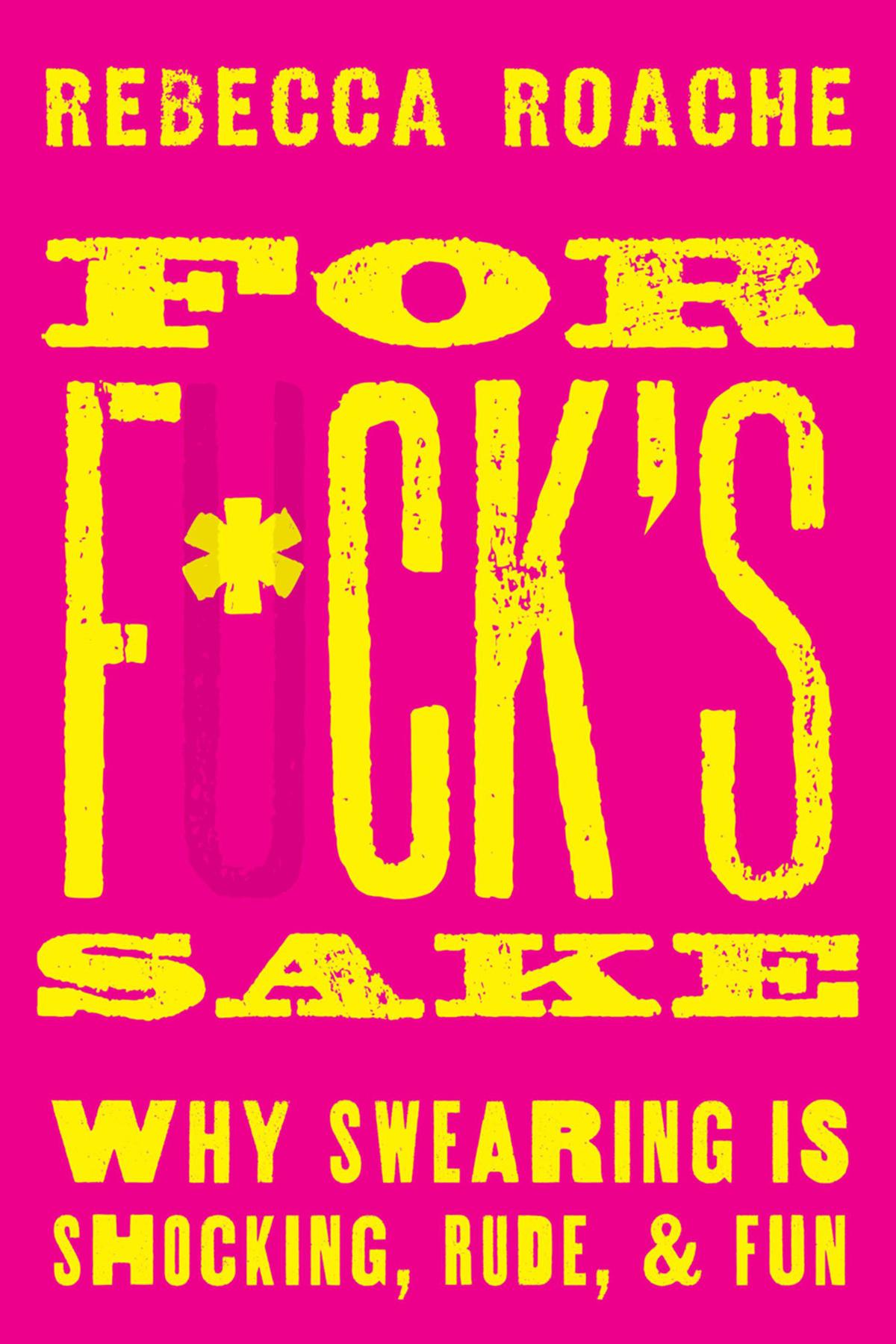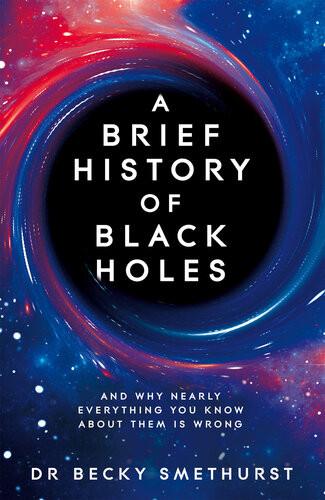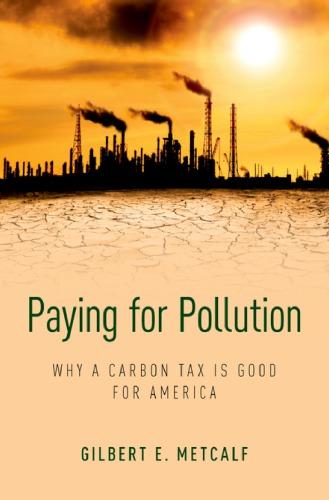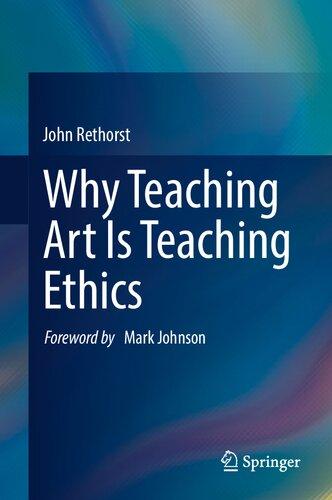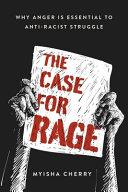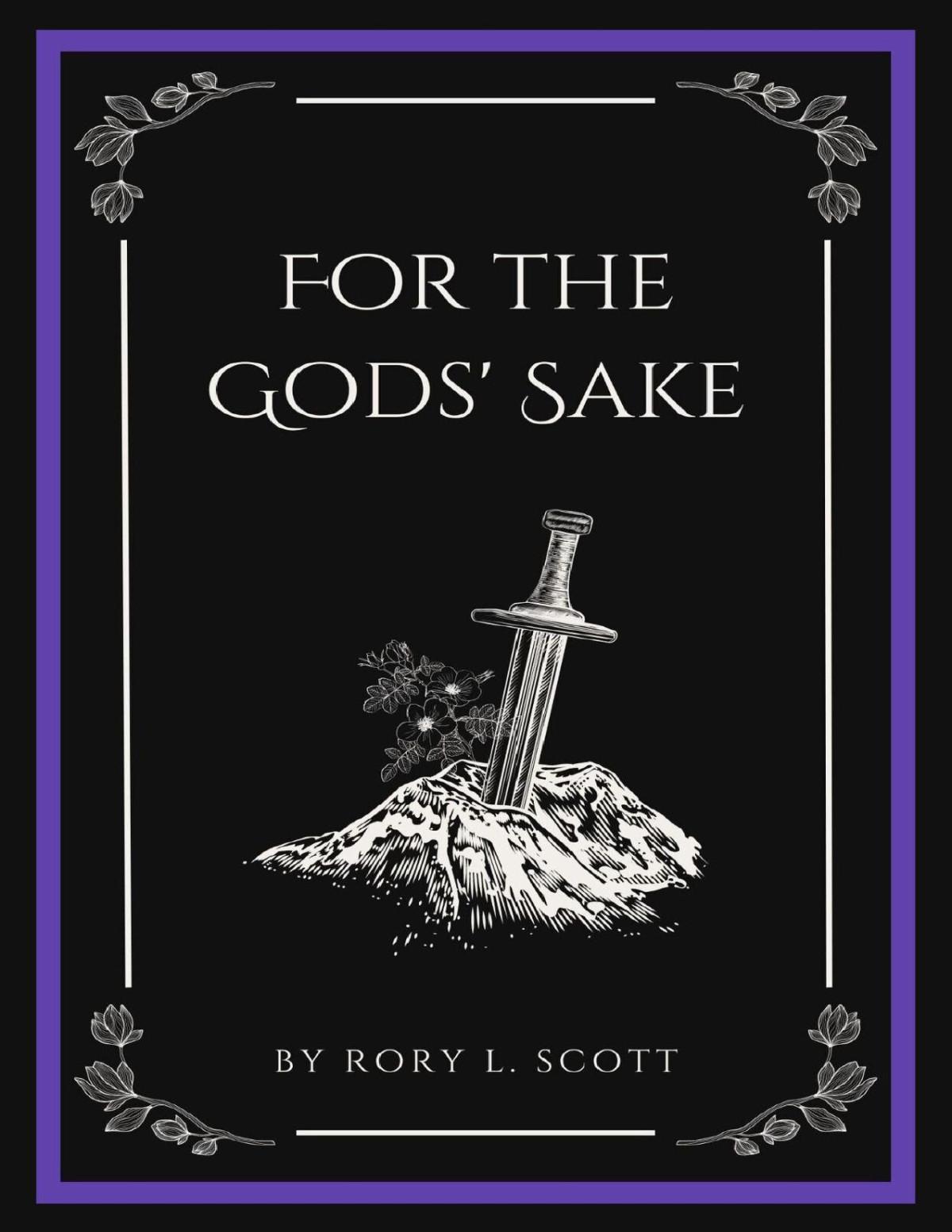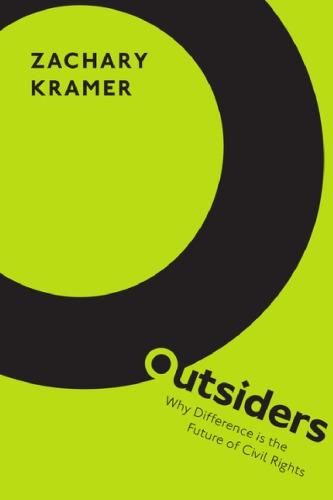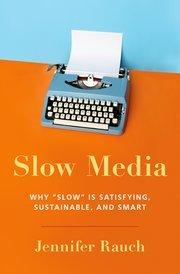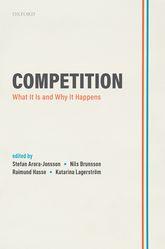For F*ck’s Sake
Why Swearing Is Shocking, Rude, andFun
REBECCA ROACHE
Oxford University Press is a department of the University of Oxford. It furthers the University’s objective of excellence in research, scholarship, and education by publishing worldwide. Oxford is a registered trade mark of Oxford University Press in the UK and certain other countries.
Published in the United States of America by Oxford University Press 198 Madison Avenue, New York, NY 10016, United States of America.
© Rebecca Roache 2024
All rights reserved. No part of this publication may be reproduced, stored in a retrieval system, or transmitted, in any form or by any means, without the prior permission in writing of Oxford University Press, or as expressly permitted by law, by license, or under terms agreed with the appropriate reproduction rights organization. Inquiries concerning reproduction outside the scope of the above should be sent to the Rights Department, Oxford University Press, at the address above.
You must not circulate this work in any other form and you must impose this same condition on any acquirer.
Library of Congress Cataloging-in-Publication Data
Names: Roache, Rebecca, author.
Title: For f*ck’s sake : why swearing is shocking, rude, and fun / Rebecca Roache. Other titles: For fuck’s sake
Description: New York, NY : Oxford University Press, [2024] | Includes bibliographical references and index.
Identifiers: LCCN 2023023399 (print) | LCCN 2023023400 (ebook) | ISBN 9780190665067 (hardback) | ISBN 9780190665081 (epub) | ISBN 9780197693896 | ISBN 9780190665074
Subjects: LCSH: Swearing.
Classification: LCC GT3080 .R65 2024 (print) | LCC GT3080 (ebook) | DDC 394—dc23/eng/20230620
LC record available at https://lccn.loc.gov/2023023399
LC ebook record available at https://lccn.loc.gov/2023023400
DOI: 10.1093/oso/9780190665067.001.0001
FormybelovedMandO,thenoisycentreofmyworld,who charminglybelievedthec-wordtobecrapuntiltheyfound adraftofthisbooklyingaround.
Contents
Whygiveashitaboutswearing?
1. What is swearing?
Swearing = offensiveness
Swearing = offensiveness + emotion
Swearing = offensiveness + emotion + linguistic anarchy
Swearing and the brain
2. Swearing’s secret offensive ingredient
What we say . . . . . . and how we say it
The taboo of taboo-breaking
3. There is no secret ingredient
Context is (almost) everything
Offence escalation
The recipe for offensiveness
4. Different kinds of wrong
When is swearing inappropriate?
Speaker intentions
Inappropriate swearing, wrongness, and offence
Swearing and moral character
Is swearing wrong?
5. Taboo, aggression, and harsh sweary sounds
Swearing and taboo, again
The sound that swear words make
Offence and expressing emotion
Offensiveness beyond words
6. How to be a really offensive swearer
Some background: nuisances
Tone and body language
Direct and indirect swearing
Accidental or deliberate
Repetition
7. You talkin’ to me?
Swear power
Setting an example
Won’t somebody think of the children?
8. A regulatory fucking mess
Who cares what we do with swearing?
A lack of clear fucking guidelines
A way forward: the nudity analogy
9. How to do things with swearing
Acts, effects, intentions, predictions
Sweary acts
Beyond speech acts
10. Fairer swearers
Putting the brakes on bias
Educating our intuition
Sweary self-improvement
11. Swears vs. slurs
The journey to offensiveness
Slurs and the feeling of offence
Becoming offensive, becoming inoffensive
Slurs, oppression, and desert
Comparing slurs
12. Cunt and cocksucker
Offensiveness and misogyny
When etiquette gets it wrong
A dilemma for sweary feminists
Gently increasing cunt love
13. Cunt and ‘cunt’
Sanitisation
Quoting and mentioning
Quotation, mention, and slurs
The limitations of sweary quotation
14. How the f*** do asterisks work?
Sanitisation: it’s not about the word
What we communicate besides the words
When asterisks don’t cut it
15. Swearing as a force for good
Respect the power of swearing
Swearing and intimacy
Swearing as a pressure valve
16. The value of offensiveness
Swearing and disability
Swearing in a foreign language
Children, again
Swearing on the outside
Conclusion: You’re all fucking superheroes
Acknowledgements
References
Index
Why give a shit about swearing?
The late Queen Elizabeth II famously described 1992 as an annus horribilis in her televised Christmas Message that year. (It means ‘horrible year’—be sensible you lot, this is Oxford University Press.) At the time, her words rippled through media reports around the world, as journalists speculated about what particular events (and there were a few candidates) could have pushed her to use her address to the nation to bitch about stuff rather than to reflect on her forty years—it was her anniversary!—on the throne. The speech is still discussed more than thirty years later, and thanks to the Netflix series The Crown, a new generation is finding out about it. Part of what raised eyebrows at the time was the fact that Her Majesty’s mask of propriety had slipped a bit, and revealed her to be . . . well, pissed off. We can all relate to that, can’t we? Even if the way in which she vented her annoyance—in Latin, while standing in front of a gold and red velvet throne—is rather distant from our own frustrated behaviour. But what if it hadn’t been? What if the way in which she had expressed herself had been much more akin to how old Geraint down the local pub moans about the roadworks on the lane leading down to his farm?
Let’s picture how this might have unfolded. Christmas day, 1992, and you’re in the UK. Perhaps it’s where you live, or maybe you’re just visiting. Bloated and snoozy after your Christmas lunch, you give thanks for the elasticated waistband on your shell suit and settle down in front of the TV to eat as much unhealthy food as possible while watching the Queen’s speech. There she is on the screen: coiffed and pearl-necklaced in front of her Guildhall throne, with her husband Prince Philip, Duke of Edinburgh on her left, and Prime Minister John Major on her right, just the other side of the ermineclad Lord Mayor of London. In the hush that follows, she begins to speak.
‘This is not a year on which I shall look back with undiluted pleasure’, she says. ‘In the words of one of my more sympathetic correspondents, it has turned out to be a fucking shit year. I suspect that I am not alone in finding that it has absolutely sucked arseholes. I’m not going to lie to you cunts. One can’t wait to see the fucking back of it’.
What might your reaction have been to witnessing this, do you think? You might respond, at least initially, with shock and disbelief. Perhaps you glance around at your family, a mince pie hovering between your gaping mouth and the crumb-dusted plate on your lap, momentarily speechless. The lot of you might wordlessly seek reassurance from each other that yes, you really did hear what you all thought you heard. After that, in some families, the experience might sour the rest of the day, and you might all gravely ruminate on what the world is coming to. But if your family is anything like mine, your initial shock would instead give way to glee and hilarity. The Queen said what? You open another bottle of wine. Argue about who’s going to use the phone first to call friends. (It’s 1992, remember: only estate agents have mobile phones, and WhatsApp hasn’t been invented.) Tell your kids to stop scaring the cats by running around yelling SUCKEDARSEHOLES!!!!!Or perhaps, instead, you would just continue watching the TV in rapt silence, not wanting to miss any further sweary outbursts from Her Majesty. Whatever your response, the chances of any of this not making headlines around the world are approximately zero.
But why should any of this be a big deal? People swear all the time. Had you decided to wander to the local pub after lunch instead of watching to see what the Monarch had to say, you would not have batted an eyelid if, during the course of an increasingly alcoholfuelled afternoon, you heard Geraint embark on yet another one of his sweary rants about the roadworks. On the other hand, in other contexts, your reaction to this sort of language would be different still. If somebody had delivered anything resembling the Sovereign’s potty-mouthed remarks during the funeral of one of your closest relatives while standing at the graveside watching the coffin being lowered into the ground, it’s likely that you would have been
horrified, upset, decidedly unamused, and perhaps even angry, even if you’re normally the sort of person who doesn’t mind swearing at all. And if one of the staff at your toddler’s nursery used this language in the presence of the children, you might be alarmed, and you might worry about this person’s competence to look after your child. What is it about swearing that leads us to react so differently to it depending on who is swearing and where and how they’re doing it? What—if anything—is wrong with swearing? And what sort of wrongare we dealing with here?
There are many puzzling things about swearing and its effect on us, but no less puzzling are some of the things we do to try to avoid causing offence through swearing. Let’s return to our imaginary Queen’s speech, which we left having observed that we could expect to find Her Majesty’s tirade reported prominently and internationally in the news. Despite the inevitable interest from the media in reporting an event like this, it’s unlikely that we would have found many news outlets reporting an unedited account of what was said. Instead, we’d have seen asterisks sprinkled across the headlines like festive snowflakes. Our Head of State would have been quoted as having described the foregoing twelve months as a f***ing sh*t year. In other words, we could have expected to find the newspapers censoring what the Queen said even as they aimed to reportexactlywhatshesaid. Similarly, televised news footage of the speech would have used bleeps to replace the swear words, and perhaps also pixelated the Defender of the Faith’s mouth in order to thwart attempts at lip-reading. And yet we’d all know exactly what it was she’d said, even if we hadn’t seen the original broadcast. This way of ‘sanitising’ swear words to communicate them inoffensively is widespread and effective—but how does it work? How does f*** manage to be less offensive than fuck, given that anyone who understands f*** knows exactly what word is being communicated to them, and given that anyone who writes f*** intends to communicate fuckto their readers? We’re going to dive into all this. It would be difficult to characterise swearing without mentioning its offensiveness, but swearing is much more than merely offensive language. For one thing, it’s not always offensive. It can express
trust and intimacy, as when friends get together for a chat knowing that they will not be judged or rejected for expressing themselves using swear words that they would refrain from using in different company. It can sometimes be very entertaining, and it plays a large role in comedy. It can even be funny at the same time as being offensive; indeed, in the Queen’s speech example, part of why some people are likely to respond with such glee to hearing Her Majesty swearing is precisely becausethey recognise that it is offensive and inappropriate. Of course, reacting with glee to something like this can feel a bit naughty, and when we witness it in the company of people who are offended, we often keep a lid on our amusement until later, when we can relax and relate the incident to our friends without offending anyone.
Even so, although it’s usually a good and considerate thing to avoid causing offence, there are limits to how much we do and should care about other people being offended. In some cases, people take offence at the wrong things—things much more significant than a word used in poor taste in the wrong context. Some people claim to be offended by interracial marriage, homosexuality, women becoming priests, and breastfeeding in public places. It’s far from clear that we should avoid exposing those people to those topics in order to avoid causing offence; on the contrary, more exposure to gains in equality and the changing nature of society is precisely what they need. If Amia is offended by Brandy’s homosexuality, then it is Amia who is morally flawed, not those who cause her to feel offended by discussing Brandy’s marriage in her company. In that case, how should we respond to someone’s taking offence inappropriately? Should we avoid doing what causes them offence? Or, alternatively, does avoiding doing what causes them to feel inappropriately offended make us somehow complicit in their flawed moral judgement? By shining a spotlight on our reactions to swearing, we’re going to get at some meatier issues that have to do with offence.
Taking care not to offend others is considerate, but here’s something that nobody talks about: having the capacity to offend people by uttering swear words is a privilege. Most of us take for
granted that if we utter swear words in a polite context, those around us will be offended. But some people struggle to produce this sort of response in other people no matter what they say. They include some people with disabilities, children, and people who have an unusual appearance or manner. Since they are less able to cause offence, these people lack the capacity for an important and useful way of communicating with others and are worse off as a result. We’ll explore this issue too, and we’ll see that in an important sense, being offended by people is a way of respecting them.
Back to the idea of avoiding causing offence. Although we generally have no problem working out when (i.e. in which social contexts) swearing would be especially inappropriate, the normative dimension of swearing—the details about how we ought and ought not to swear, and why—is mysterious to us. For some of us, the very idea that there can be norms about how we should and shouldn’t swear might seem senseless. Or, rather, it might seem that there is just one norm: we shouldn’t do it, ever. (This is what many of us were taught as children.) For others, swearing is an important and valuable form of expression which shouldn’t be reined in because some people are too up tight to deal with it—it’s just words, after all. We’ll see that neither of these approaches gets things quite right. Understanding the oughts of swearing requires digging down below the surface and exploring what gives swearing its power to affect us in the way that it does, what makes some instances of swearing more offensive than others, what we do to mitigate its offensiveness when we really want to communicate a swear word but really don’t want to upset anyone, and why we find the whole topic so mysterious in the first place. We’ll see that the norms of swearing are built upon a network of attitudes that we hold towards each other, which we typically signal indirectly and often without even realising what we’re doing.
You might not agree with some of my conclusions; indeed, I’d be astonished if you were to find my entire argument which is, in a nutshell, that the offensiveness of swearing isn’t about the words at all—uncontroversial. My hope is that I might inspire you to reflect on these issues, discuss them with others, draw your own conclusions,
and gain some insight into how and why you and others use and respond to swearing in the way that you do. But disentangling these issues is about more than merely satisfying intellectual curiosity. It has important practical implications too. Our attitudes and responses to swearing shape society and culture in ways that run deep—and this happens despite the difficulties in articulating exactly why we have these attitudes and responses in the first place. In fact, despite it being somewhat mysterious why swearing bothers us so much, inappropriate swearing tends to be dealt with confidently and firmly. And sometimes, this results in injustice.
Let’s get technical for a moment (I promise I’m not going to make a habit of it): individuals and organisations have a range of formal and informal ways of discouraging, censoring, and punishing swearing, to which I’m going to refer collectively as anti-swearing measures. These range from the informal social norms that reveal themselves in our intuitive sense of when swearing is really not on, to formal, explicit rules and even laws prohibiting swearing. The most informal anti-swearing measure, and also the most widely implemented, is simple disapproval. When we find ourselves in situations where swearing is inappropriate—a job interview, for example, or when meeting a romantic partner’s parents for the first time—our awareness that those around us will frown upon our swearing is effective as a discouragement. If we forget ourselves and swear in a situation like this, we’re likely to feel embarrassed and apologise. In other words, our anticipation of disapproval from the people around us leads us to self-censor: to keep our language clean when we’re in polite contexts. In turn, other people’s anticipation of our own disapproving attitudes contributes to those people self-censoring. In contexts where swearing is inappropriate, even if nobody actually swears and as a result nobody expresses disapproval, everyone’s awareness that if they did, someone might, ensures that they don’t, and that if they do, they feel embarrassed and apologise. As a result, without even realising, we are all signed up to an informal, voluntary scheme to regulate swearing. We recognise that there are contexts in which we should not swear, we participate in shaming others who swear in inappropriate contexts,
and we respond contritely in cases where we ourselves swear in those contexts and suffer the disapproval of our peers.
So: it’s worse to swear in some social contexts than in others. But our intuitions about when swearing is and isn’t inappropriate aren’t just about what context we’re in. Who is doing the swearing also matters. The way we respond to inappropriate swearing, and the pressure on the swearer to apologise, are magnified in cases where the swearer is a public figure; especially if the swearer is (like the Monarch) the sort of public figure that we expect to be a model of decorum. This illustrates that our intuitions about swearing are actually pretty complex: there’s a range of factors we take into account (usually unconsciously, of course) when assessing just how bad a particular instance of swearing is. But our example involving the Queen raises another point about our responses to swearing too. Inappropriate swearing by a public figure, along with any subsequent apology (or lack of one), is often deemed newsworthy. This places swearing in the spotlight, in a way that doesn’t happen when it’s Geraint down the pub who’s doing the swearing. When swearing makes the news, a contrite response from the swearer provides a public affirmation and reinforcement of the view that swearing is unacceptable; by contrast, shrugging off the incident sends the message that swearing is no big deal. Inappropriate swearing by public figures, then, often provides an opportunity to test wider attitudes to swearing. Such incidents can act as a barometer of swearing’s offensiveness, and when the public’s response changes over time, this is sometimes taken to indicate that the offensiveness of swearing has changed too.
As an example here, let’s compare two related incidents of swearing, twenty-eight years apart. In 1976, British punk band the Sex Pistols famously swore while being interviewed by Bill Grundy on the British teatime TV show, Today. The incident cost Grundy his career; a result of the fact that not only did Grundy fail to condemn the first incident of swearing during the interview—in which guitarist Steve Jones said, of the band’s earnings, ‘We’ve fucking spent it, ain’t we?’—but Grundy then encouraged the band to swear more, which gave rise to shit, bastard, fucker, and fucking. There followed
outraged headlines, cancelled gigs, and footage of the incident in music documentaries for decades to come.
By contrast, the public responded more apathetically in 2004 when former Sex Pistol John Lydon called a live TV audience of over ten million viewers fuckingcuntswhile participating in the British TV reality show, I’m a Celebrity . . . Get Me Out of Here! This was despite his sweary outburst being, in an important sense that we’ll explore in later chapters, worse than what was said in the Bill Grundy incident. One way in which it was worse was that Lydon’s fucking cunts directly insulted the viewing audience whereas the Pistols’ 1976 sweary utterances were either undirected (i.e. used as a kind of punctuation rather than addressed as insults to anyone in particular) or directed at Grundy himself following his encouragement of the behaviour. Another way in which it was worse is that it involved a more offensive word: cuntis widely regarded as the most offensive English swear word. Despite this, fewer than a hundred official viewer complaints about this remark were received by the UK’s communications regulator Ofcom following Lydon’s 2004 outburst. The nation wasn’t scandalised, as it had been in 1976. Nobody lost their job, as Grundy did back then. The difference in the public’s responses to the 1976 and 2004 incidents of swearing were widely seen as indicative of a shift in attitudes to the acceptability of swearing.1 Here, then, was a case of the public’s attitudes towards swearing being tested and examined via the media, and conclusions drawn.
While we’re on the topic of swearing on TV, let’s take a look at another aspect of anti-swearing measures. Swearing during a TV show is about more than informal attitudes towards swearing. TV broadcasts are subject to formal rules about whether, when, and how much swearing is permitted, and what happens if these rules are breached. There are regulations like this in place around the world. In the UK, Ofcom’s Broadcasting Code restricts swearing to certain contexts and can impose fines on broadcasters when these rules are broken. In the United States, the Federal Communications Commission (FCC) sets rules about swearing in US TV shows,
although it is not allowed to fine broadcasters who break these rules. There has been an attempt in the US to tighten rules about swearing: in 2003, the US government considered (but subsequently decided against) implementing the Clean Airwaves Act, which forbade broadcast of the words ‘shit’, ‘piss’, ‘fuck’, ‘cunt’, ‘asshole’, and the phrases ‘cock sucker’, ‘mother fucker’ and ‘ass hole’, compound use (including hyphenated compounds) of such words and phrases with each other or with other words or phrases, and other grammatical forms of such words and phrases (including verb, adjective, gerund, participle, and infinitive forms). (Introduction of the Clean Airwaves Act, U.S. Cong., 149 Cong. Rec. E2486 [2003])
The general message sent by formal anti-swearing measures is that swearing is unacceptable, at least in certain contexts. However, if we want more specific guidance about exactly how much swearing, and of what sort, is acceptable in a given context, we quickly encounter rules that are so arbitrary as to be bizarre and almost senseless. The UK comedy writer Richard O. Smith related (in conversation) that in writing a half-hour show for BBC Radio 4, he was restricted to ‘two shits and a wank’. Leon Wilson, producer of ITV’s Celebrity Juice, one of the UK’s sweariest TV shows, is allowed four motherfuckers but unlimited fucksper thirty-three-minute show (Zaltzman 2015). Film director Ken Loach, responding to what he viewed as overzealous censorship by the British Board of Film Classification (BBFC) of his 2012 film TheAngel’s Share, complained about the ‘world of surrealism’ into which discussions descended. He commented that in order for the film to be granted a 15 certificate, ‘We were allowed seven cunts . . . but only two of them could be aggressive cunts’ (Higgins 2012). The ‘surrealism’ of rules like these arises from the attempt to capture and quantify all the nuance, vagueness, and messiness of public attitudes towards swearing. In the absence of a rigorous rationale, these rules seem disconnected from our everyday intuitions about swearing. (Most of us would be hard pressed to explain why, if four motherfuckers per thirty-three minutes is basically fine, five crosses the line into unacceptable
offensiveness.)2 There are regular efforts to provide such a rationale —Ofcom, BBFC, and the UK’s Advertising Standards Authority conduct surveys into public attitudes to swearing and use the results to inform regulations—but these generally take public opinion as their authority; as a result, they provide inadequate guidance in difficult or unusual cases, and they are silent on the issue of how to recognise when the public gets it wrong, and how to proceed in those circumstances.
Formal anti-swearing measures are not confined to broadcasting, of course. A schoolteacher who swears at one of their pupils, or a doctor who swears at one of their patients, risks breaching professional guidelines about conduct. Athletes who swear while competing may find themselves punished for unsporting behaviour. This is not to say that swearing is always explicitly prohibited in formal rules about conduct; very often, it is not. Instead, that one shouldn’t swear in certain contexts is taken to be implied by more general rules about professional conduct and treating others with politeness and respect. That implication itself contains a tangle of unquestioned views about swearing, including judgements about when swearing constitutes disrespect—which, of course, it sometimes does, but not always.
The pinnacle of formal anti-swearing measures is the law. Swearing can get you arrested in many places across the globe. In the US, public swearing in the town of Middleborough, Massachusetts, is punishable by a $20 fine. Swearing in public counts as a class 4 misdemeanor in Virginia, and can attract a $250 fine. Swearing can count as disorderly conduct in several states including Utah, Texas, Arizona, New Jersey, and the District of Columbia.3 In the UK, arrests for swearing tend to happen under Section 5 of the Public Order Act, which makes it an offence to use ‘threatening or abusive words . . . within the hearing or sight of a person likely to be caused harassment, alarm or distress thereby’ (UK Pub. Gen. Acts 1986). In Canada, those who cause a disturbance by swearing in public are guilty of an offence, and in February 2015 the town of Taber, Alberta, introduced fines for
swearing (CBC News 2015). You can also get fined for swearing in several Australian states, and in 2014 New South Wales increased on-the-spot fines for offensive language from $150 (£80) to $500 (£270) (Dearden 2014). In 2013, the Australian government introduced a code of conduct for asylum seekers, which reportedly threatened deportation for a range of activities, including swearing (Gander 2014). In Russia, in 2014, the government passed a bill that bans swear words from films, music, and other works of art (Omidi 2 014). In Iraqi Kurdistan, the Family Violence Law takes domestic violence to include swearing at children by parents (Parliament of Kurdistan-Iraq 2011). Singapore’s ‘outrage of modesty’ laws have been invoked against swearing and led to the arrest in 2012 of an Australian man for swearing on a flight from Perth to Singapore (Low e 2013). Convictions under these laws are punishable by two years in prison, twenty-four lashes with a cane, a fine, or a combination of these. In the United Arab Emirates (UAE), ‘disgrac[ing] the honour or the modesty of another person’, including by swearing, is punishable by imprisonment and/or a fine, with the severity of the punishment depending on whether the person sworn at is a public official, whether the insult is public, whether witnesses are present, and various other factors (Dhal 2013). Swearing is not illegal in China, but public opinion is divided on whether it should be. In 2013, Alpais Lam Wai-sze, a Hong Kong primary schoolteacher, swore at police officers during a confrontation between two political groups. A video of the incident went viral, triggering a demonstration of three thousand people at which there was some violence between Lam’s critics and her supporters, who viewed her respectively as a pottymouthed upstart and a defender of free speech (Tatlow 2013). In the wake of this, a survey of Chinese teachers found that two-thirds believe that swearing in their profession should be regulated by a code of conduct (Wei 2013).
The issue of whether and how swearing should be dealt with by the law is controversial. There is some confusion, it seems, about whether (and under what circumstances) swearing should count as disorderly conduct, or fighting words, or a breach of the peace, or threatening behaviour, or any other category of behaviour for which
one can get arrested. A landmark case here is Cohen v. California, which we’ll return to later. This case saw the court decide that wearing a jacket emblazoned with the words Fuck the Draft warranted arrest and imprisonment, only to change its mind on appeal. This 1971 decision marked only the beginning of US law’s confusion over fuck. The late Christopher M. Fairman, professor at Ohio State University Moritz College of Law, noted in his 2006 article ‘Fuck’ that since Cohenthere have been judgements permitting Fuck Hitler, Fucking orders, and Fucking genius; and judgements prohibiting Fucktheumpand Fuckingbrilliant(Fairman 2006, 49).
Other English-speaking countries have not done much better. In the UK, Denzel Cassius Harvey’s conviction and £50 fine for saying fuck while police officers searched him for drugs was overturned in 2011; a controversial decision which prompted Boris Johnson, who was London Mayor at the time, to pledge a zero-tolerance approach to swearing at the police. Four years after these zero-tolerance comments, Johnson was filmed yelling at a London taxi driver, ‘Why don’t you fuck off and die?’, an outburst that suggests that Johnson views taxi drivers as less worthy of respect than police officers, or perhaps that members of the public should be held to higher standards of behaviour than politicians, or perhaps that he simply doesn’t know his arse from his elbow when it comes to politics. Confusion about fuck and the law is perhaps most comically illustrated by a 2017 Australian case, in which Filip Black replied ‘none of your fucking business’ to a police officer who asked him what he was doing in the area. Black was arrested, only to be released a minute later when the arresting officer evened out the swear tally by telling Black that he was ‘fucking worked up’. Black was then re-arrested when he told the arresting officer to ‘fuck it right in your mum’s pussy’ (McGowan 2017).
Around the world, there is debate between those who oppose harsh penalties for swearing on the ground that they are an unacceptable infringement on free speech and those who support such penalties in the interest of eliminating antisocial behaviour, which some view as likely to lead to more serious transgressions if left unaddressed. It is possible, as we’ll see, to take a more nuanced
position than either a completely permissive approach or a zerotolerance attitude to swearing. We can all agree that Filip Black’s none of your fucking business was in some sense milder than his fuck it right in your mum’s pussy. That this difference, and other relevant factors, should be reflected in our anti-swearing measures is appropriate. We do, after all, generally view it as appropriate that minor wrongdoings are punished less severely than more serious ones. It remains to map out the sweary landscape by considering what sort of instances of swearing are more serious than others, what makes them so, how to identify them, and how to compare them with wrongs that do not involve swearing.
We’ve looked at anti-swearing measures that discourage swearing, and those that punish swearing. But discouragement and punishment are not the only goals of these measures. Swearing is also censored in various ways. We’re all familiar with seeing sh*t instead of shit in newspapers, and of hearing bleeped-out swearing on TV and radio, but censorship can take other forms too. Swearing during a live broadcast can get you removed from the airwaves, as happened to Sir Bob Geldof in November 2014 when he said bollocks twice during a Sky News interview (Perraudin 2014). Some communication systems make it impossible to swear: the well-to-do British department store Marks and Spencer hit the headlines in March 2015 for banning the word Christ, along with the usual swear words, from gift messages when buying flowers online (Willgress 20 15). (It later removed Christfrom the banned list.) You can even opt in to censorship: the Clean Reader app prevents swear words from being displayed in e-books, and has been heavily criticised by writers including Joanne Harris, Margaret Atwood, and Lionel Shriver (Furne ss 2015; Perry 2015; Shriver 2015). Censorship plays an important role in mitigating the offensiveness of swearing, but it’s not always clear exactly how it works (if we communicate fuckby writing f***, how does the latter manage to be less offensive than the former?) and if it’s not done right, it can actually cause more offence than would have been caused were it not used at all. We’ll look at how censorship works and how it can fail in more detail later.
By considering the various ways in which swearing is formally prohibited, censored, and punished, it is easy to end up with a sense that regulators are bizarrely obsessed with swearing. After all, the planet is burning, and as I’m writing this, people around the world are sheltering indoors while a deadly pandemic rages outside. But it’s possible that swearing is more complicated than that. Detective Chief Superintendent Colin Paine, Head of Professional Standards at Thames Valley Police, has (in conversation) suggested that there may be a more nuanced interpretation of arrests for swearing. In some situations in which a member of the public is behaving in a generally disruptive and unacceptable way that includes swearing, their swearing is a behaviour that is easy to point to as a justification for viewing their behaviour as unacceptable, and therefore (in some cases) worthy of arrest. After all, often, when we judge someone’s behaviour to be disruptive or unacceptable, it is difficult to articulate exactly why. These judgements are often heavily dependent on context, and we take into account factors of which we may not be fully conscious, including subtle changes in body language such as how close they stand to us and how long they hold our gaze. This can make it difficult to explain to a third party why we judged the person’s behaviour to be unacceptable; a difficulty that is reflected in some of the vague ways we formulate such explanations: ‘She was a bit off with me’, ‘He was a bit jumpy’, ‘She didn’t say so, but I could tell she didn’t want me around’, ‘He didn’t respond but he looked like he wanted to punch someone’. We can sometimes feel foolish if pressed about accounts like this—we might say, in such a case, ‘I guess you had to be there’. On the other hand, if the person whose behaviour we judge inappropriate swears, then our job is easier. ‘He swore’ is more convincing as a justification for such a judgement than ‘He didn’t respond but he looked like he wanted to punch someone’. Swearing, then, can be a focus for otherwise vague and context-dependent judgements that a person’s behaviour or general manner is inappropriate; and a person’s swearing can help legitimise our negative evaluation of them. This might help explain why it is mentioned in some regulations about unacceptable behaviour and in explanations for why certain regulations were applied. Such
regulations and explanations cannot take into account all the relevant context; swearing helps make this context less relevant. It is to be expected that it can be hard to explain why we form certain judgements about a person’s behaviour, whether we judge them to be rude, threatening, excited, amused, elated, or something else. We take our cues not only from what they explicitly say but also from subtle aspects of body language and from contextdependent factors like the social setting, our history with them, and their interactions with other people present. We shouldn’t expect to be able to convey the nuances of these judgements to someone who wasn’t there. Sometimes you really did have to be there. But, when these judgements lead to a formal response like arrest, censorship in the media, or a professional reprimand, there are reasons to be concerned. Our inability to articulate why we make certain judgements about other people’s behaviour can conceal a variety of biases, many of which we do not even realise we hold. In the US, African Americans are incarcerated at more than five times the rate of whites; in the UK, Black people are more than three times more likely to be arrested as white people (National Association for the Advancement of Colored People 2023; UK Government 2022).4 Black men tend to be viewed as larger and more threatening than similarsized white men (Wilson et al. 2017). A 2009 study commissioned by the UK government found that job applicants with a ‘white-sounding’ name are 74 per cent more likely to receive a positive response than similarly qualified applicants whose name is associated with an ethnic minority. A 2019 Spanish study found that female job applicants are 30 per cent less likely to be called for a job interview than similarly qualified male applicants, and that the penalty for having children is higher for women than for men. These data reveal that—without our even realising, and even if we’re well intentioned— our evaluations of people are influenced not only by things like body language and social context but also by factors that ought not to feature at all, such as ethnicity and gender. This gives us a powerful reason to respond to swearing appropriately, in order to avoid the injustice that inevitably results from our decisions being influenced
by these biases. If a person’s swearing helps legitimise a negative evaluation of them that we have already made but are not sure why, then people from oppressed groups are likely to pay a higher penalty for swearing than those from other groups. We should not expect anti-swearing measures to be able to correct for this bias, but by providing a clear and sensible rationale for rules about when swearing is unacceptable, we can hope that anti-swearing measures that reflect this rationale will promote conscious and reflective decisions rather than supporting the sort of unconscious, difficult-toexplain, ‘gut feeling’ judgements that can conceal a range of inappropriate biases.
This little skate through some of the ways we, as a society, deal with swearing reveals that any confusion we feel about exactly whether, why, and when swearing is inappropriate does not stand in the way of responding either informally or formally to swearing. That can be useful, for actions-speak-louder-than-words-type reasons: if we feel like we’re not sure what we think about swearing, looking at how we actually respond to it can reveal attitudes that we might not have been aware that we have, in roughly the same way that a person can suddenly discover that they don’t actually like their job as much as they thought they did when they get fired and then realise that they feel relieved rather than upset. Even so, things are more complicated than this. Our practices do not merely reveal underlying attitudes; they also create them. Punishing, censoring, or officially prohibiting a given behaviour reinforces the view of that behaviour as wrong; punishing it on the grounds that it is a form of abuse reinforces the idea that it is a form of abuse. Our practices can also mask our uncertainty about how a given behaviour should be dealt with. Societies, organisations, clubs, businesses and so on often need to make a decision about how best to deal with a behaviour in the face of disagreement and uncertainty about how to deal with it. They need to respond to the practical demands of keeping everything running smoothly, and sometimes it is more important that somedecision is made than whatdecision is made. It is easy to overlook this and to forget that the fact that a certain behaviour is regulated in a certain way does not settle the question
of how it is most appropriately dealt with, or dispense with the need for further reflection. Once anti-swearing measures are in place, then, it is important to continue to consider whether they are appropriate, or whether instead they are too harsh, inconsistent with the ways we deal with other objectionable behaviours, based on misconceptions about what swearing is, and so on. For these reasons, too, looking at some of our ways of dealing with swearing is a good place to start.
We’re going to begin, in Chapter 1, by looking at what swearing is. Yes, I know you already know, but it’s going to be useful to make explicit what we all already know about swearing, and to reflect briefly on how it differs from other, similar uses of language. In Chap ter 2 we’re going to turn to the mysterious issue of where swearing gets its power to shock and offend. We’ll look at some common and plausible-seeming explanations that have to do with swear words themselves, but it turns out that none of these is quite satisfactory. Instead, as we’ll see in Chapter 3, the secret of swearing’s offensiveness does not lie in the words themselves; we find it, instead, in the unspoken messages that we communicate to those around us when we swear. By the time Chapter 4 rolls around, you’re probably going to be wondering exactly what we mean when we talk about swearing being offensive, inappropriate, and wrong, so I’ll clear this up there. Then, in Chapter 5, I’ll address a question that is raised by my argument that swearing’s offensiveness doesn’t arise from the words themselves: if it’s not about the words, then why do swear words all tend to be similar in certain ways? In particular, why do swear words around the world tend to be words for taboo things, and why do they all tend to have a certain sort of sound? Chapters 6 and 7 cover some of the factors that make some instances of swearing significantly more objectionable than others. In Chapter 8 we return to the problem that, as we saw above, regulations about swearing are often confused and incoherent, and I’ll explain why this is a problem. In Chapter 9 I’ll draw on some influential work in philosophy of language to sketch out a framework that can be used to make sensible decisions about how to regulate swearing. In Chapter 10 I’ll explain why relying too heavily on our
intuitive sense of how offensive swearing is can lead to bias and injustice—and how we can reflect on and revise our intuitions so that they point us in the right direction. The next two chapters focus on how the offensiveness of certain terms intersects with prejudice: in Chapter 11, we compare swearing to slurs, and look at how and why the norms around swearing differ from those around slurs; and in Chapter 12, we’ll see that prejudicial attitudes are to blame for the offensiveness of cuntand cocksucker. Chapters 13 and 14 deal with some ways, including the use of asterisks, that we can utter swear words (and other offensive terms) in a way that reduces their offensiveness—and with some of the pitfalls and limitations of these strategies. After all that tortuous thought about offensiveness, things become more upbeat in Chapter 15, when we look at the positive side of swearing. And finally, in Chapter 16, I argue that those of us who find ourselves in the position of having to worry about whether we might cause offence with the language we use should count ourselves lucky: there are those who are simply unable to cause offence when they use swear words, and those people suffer a moral wrong as a result.
Get the kettle on and the swear jar at the ready, and let’s get started.
1 Despite these claims by journalists, the diminished public outrage in response to the second incident compared to the first does not really show that swearing has become more acceptable over the years. More likely is that the 1976 incident was shocking largely because it was unexpected, given that the Sex Pistols had not yet reached the height of their fame. By contrast, in 2004, the audience knew what to expect from John Lydon, who therefore failed to cause widespread outrage with his on-brand remark.
2 It’s worth noting that this point isn’t unique to swearing. Any attempt to formalise explicitly the sorts of rules that we tend to think about only in general terms is similarly doomed to ‘surrealism’. Imagine trying to specify how close, to the nearest millimetre, it’s appropriate to stand to an acquaintance you ran into in the supermarket without risking their thinking you’re either uncomfortably close or weirdly distant. Or how loud (in decibels) and how long (in seconds) a murmured conversation in the cinema can be without annoying your fellow filmgoers.
3
See Nunberg (2012); Theoharis (n.d.); Tex. Penal Code, Disorderly conduct and related offences, tit. 9, ch. 42 (2007) (available at https://statutes.capitol.texa s.gov/Docs/PE/htm/PE.42.htm); Ga. Code Ann. Disorderly conduct, tit. 16, ch. 11, art. 2, §16-11-39 (2010) (available at https://law.justia.com/codes/georgia/2010/ti tle-16/chapter-11/article-2/16-11-39); Ariz. State Legislature, §13-2904, Disorderly conduct; classification (n.d.) (available at https://www.azleg.gov/ars/13/02904.ht m); New Jersey disorderly conduct. n.d. (available at https://www.sliwinskilawoffic e.com/disorderly-persons-offenses/new-jersey-disorderly-conduct/); Council of the District of Columbia, D.C. Code, Disorderly conduct, §22-1321 (2013) (available at https://code.dccouncil.gov/us/dc/council/code/sections/22-1321).
4 Throughout this book, ‘Black’ when used to refer to Black people is capitalised but ‘white’ is not. This is increasingly conventional in many places, but not yet universal. Luke Visconti, founder and chairman of Diversity.Inc, makes the case for this approach:
‘Black’ is also accepted by many Black people as an inoffensive description. It is a generalised description and can be supplemented by another description such as Black Canadian, Black African American, Nigerian American or Black Latino. However, many Black people describe themselves simply as being ‘Black’, and this reality is reflected in a body of literature, music, and academic study.
‘I do not believe “white” needs to be capitalised because people in the white majority don’t think of themselves in that way. I don’t think there’s anything wrong with this—it’s just how it is. The exception is white supremacists who have a definite vision for what “White” means—and they capitalise the “W” ’ (Visconti 202 0).
Mike Laws of the Columbia Journalism Review succinctly echoes this approach: ‘For many people, Black reflects a shared sense of identity and community. White carries a different set of meanings; capitalising the word in this context risks following the lead of white supremacists’ (Laws 2020).
